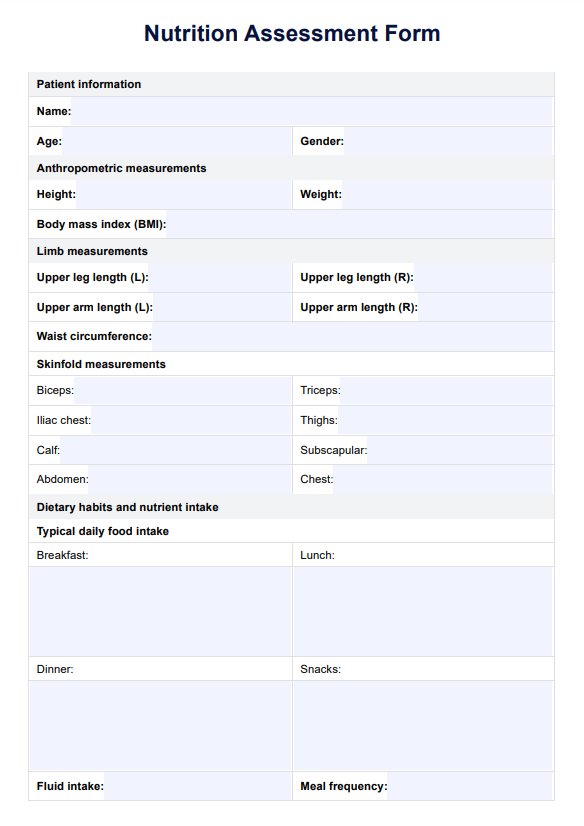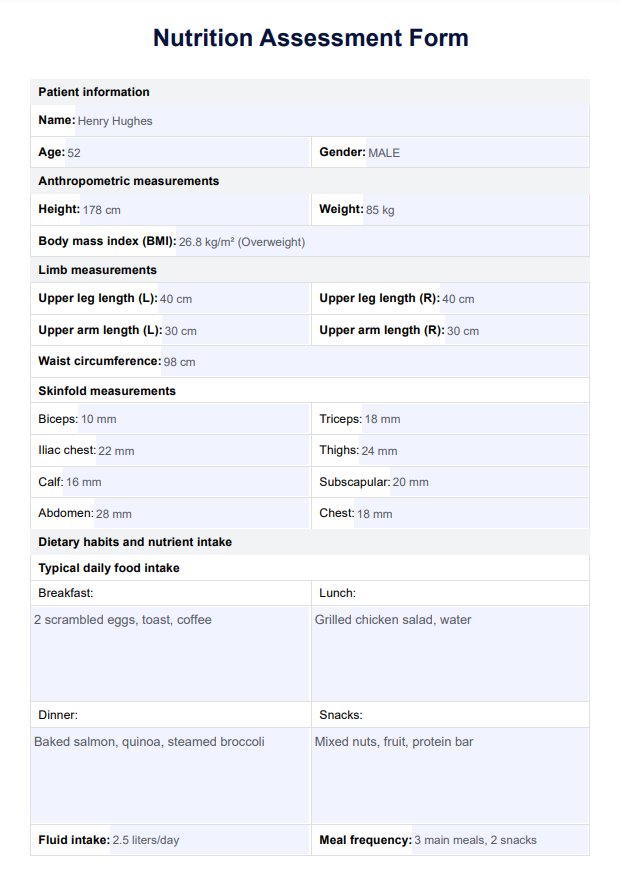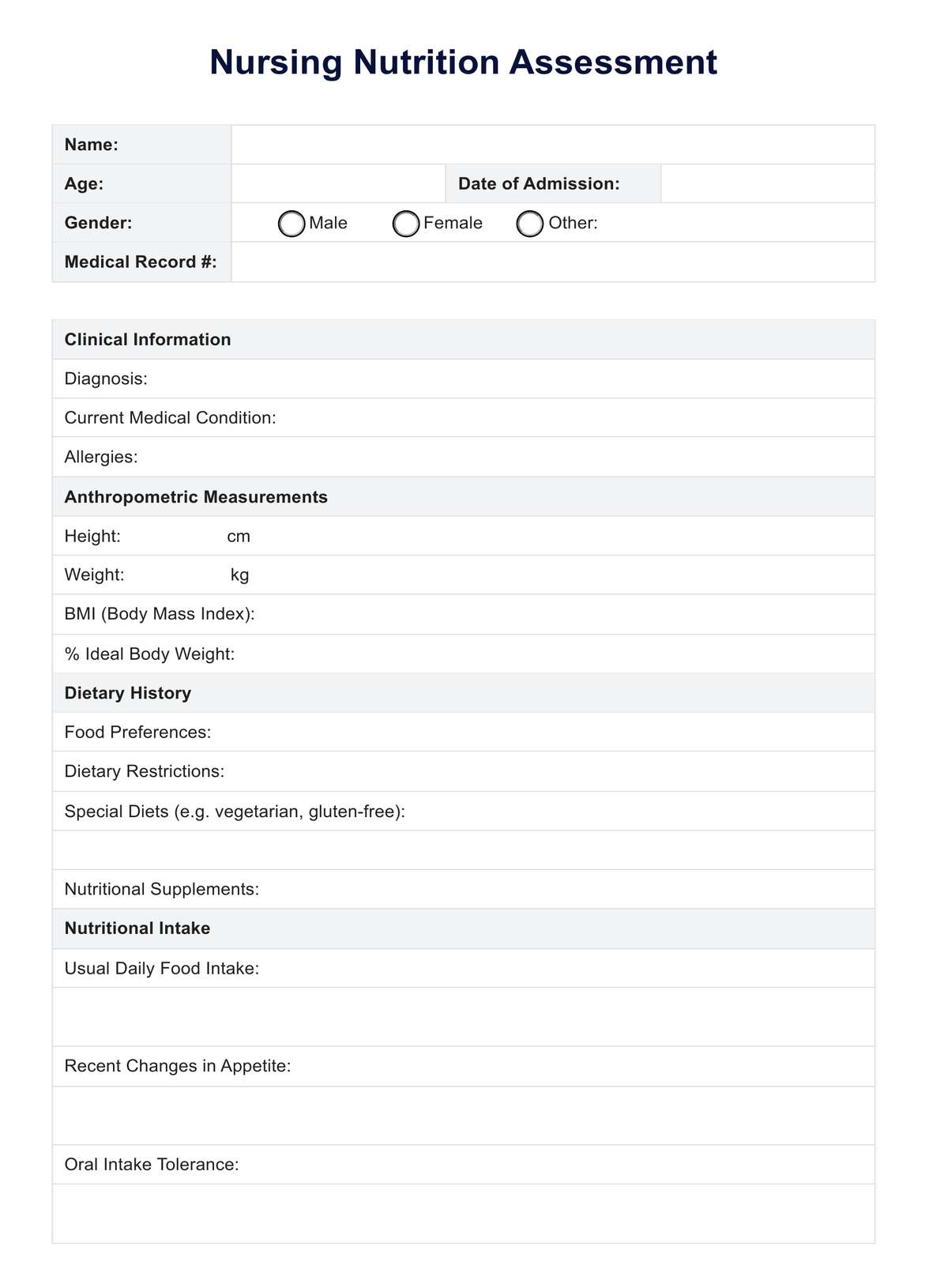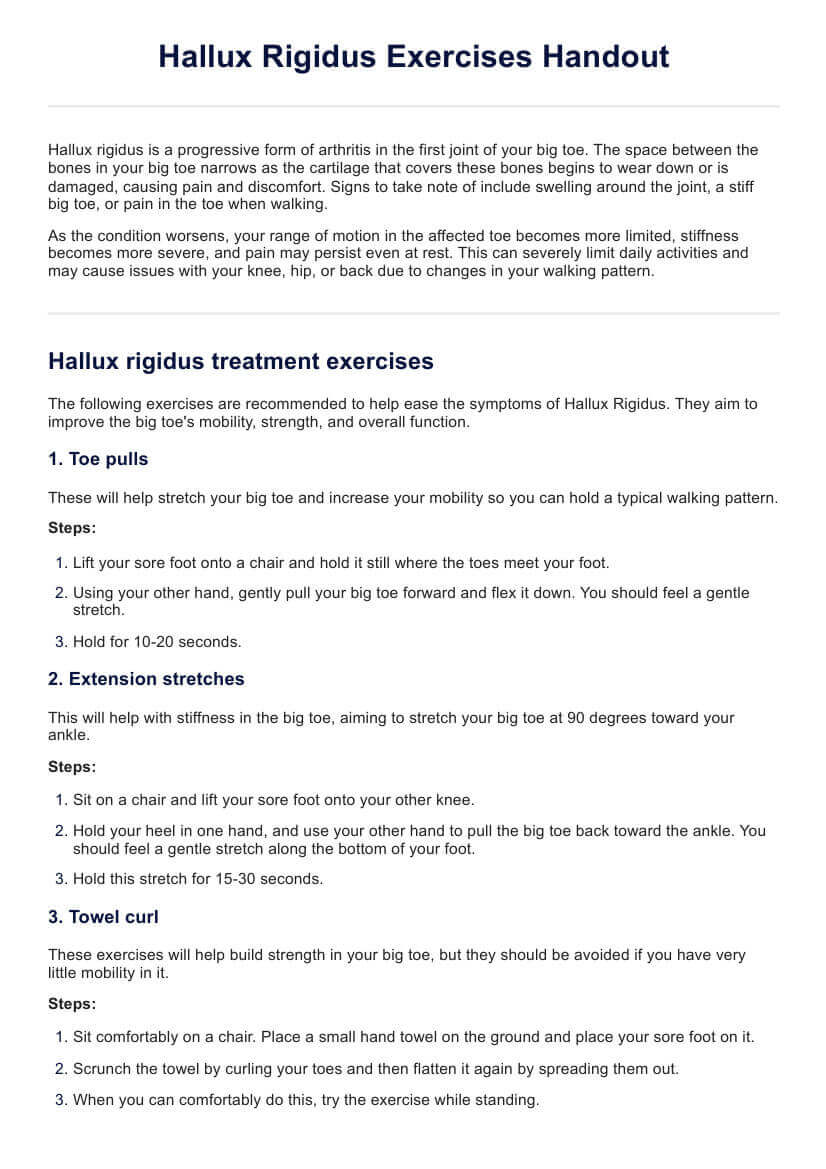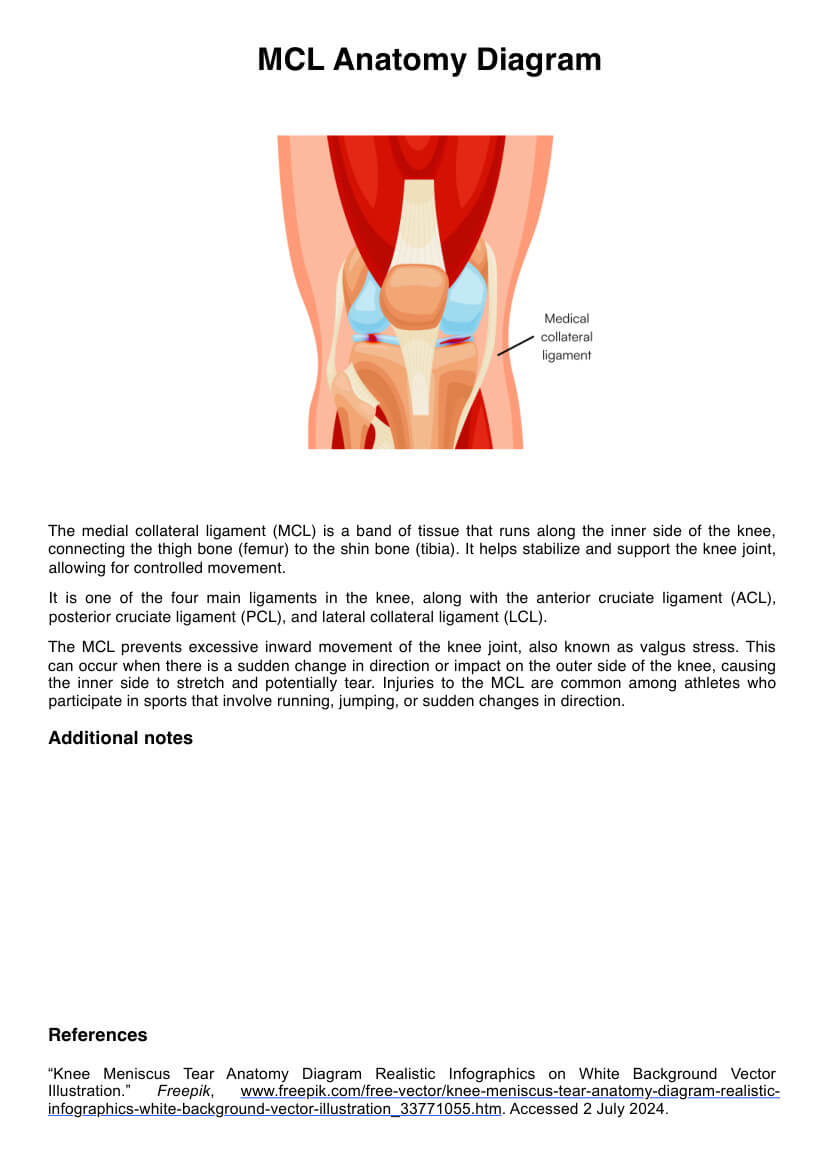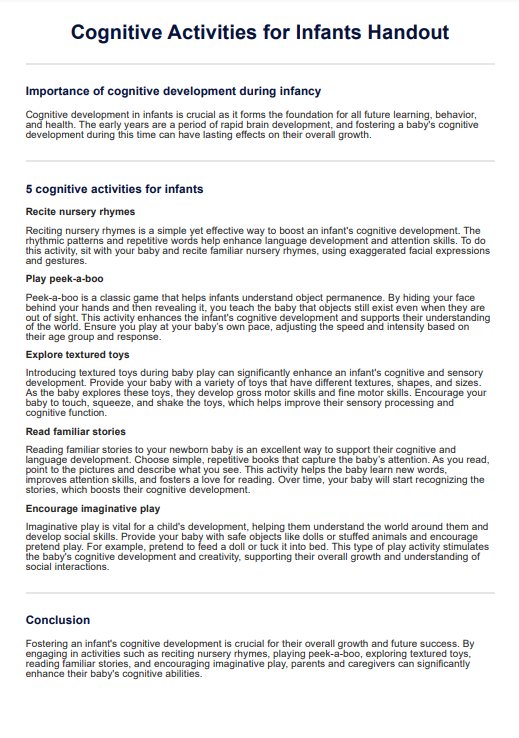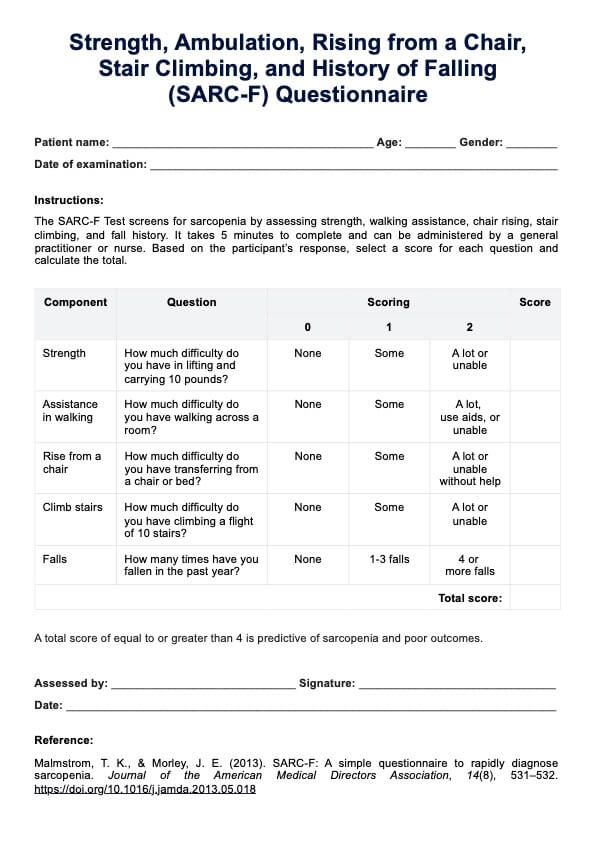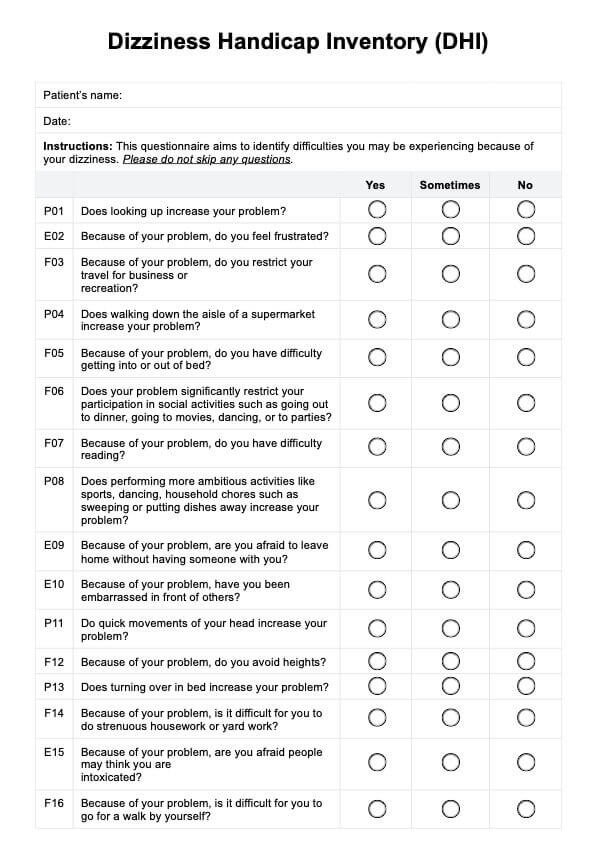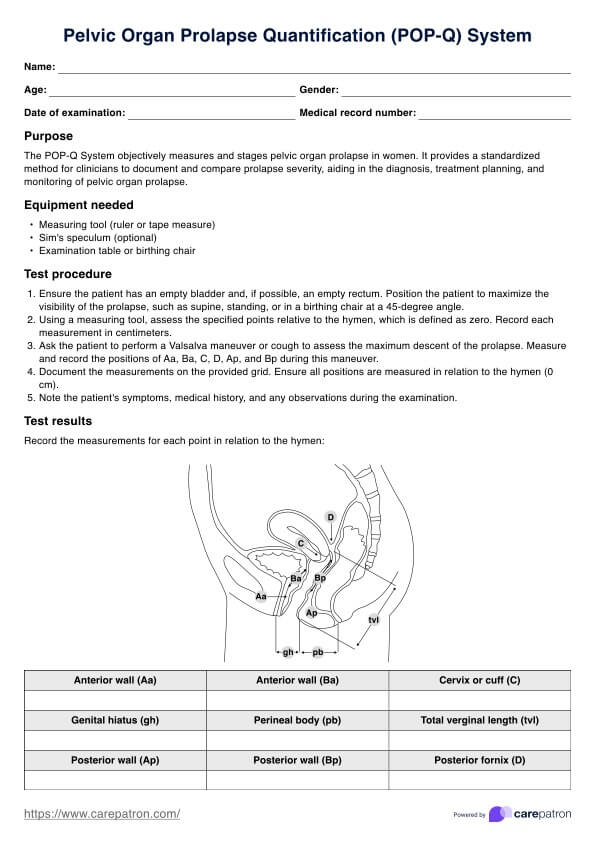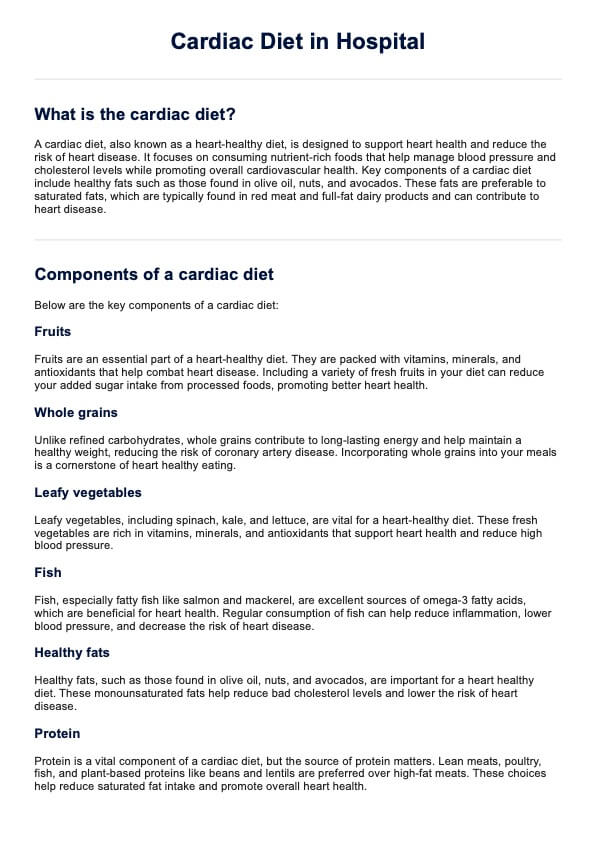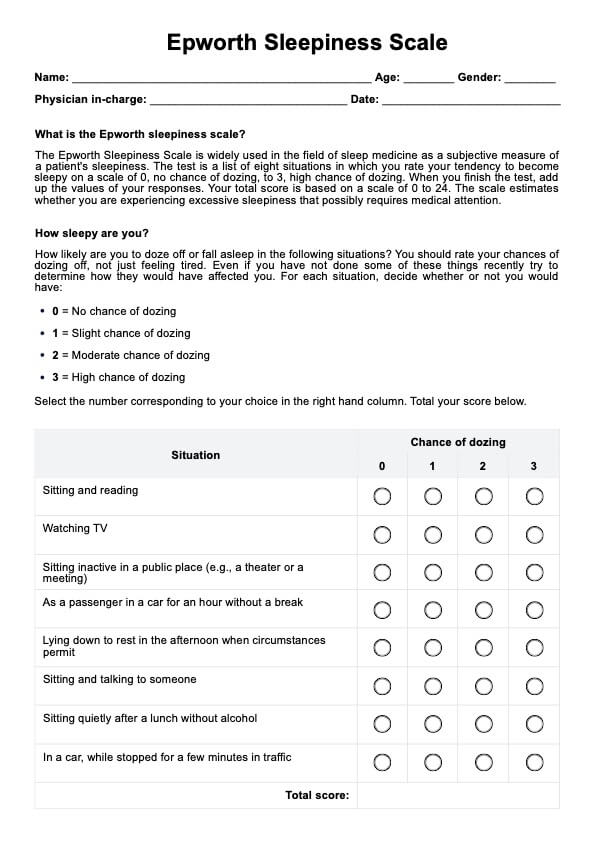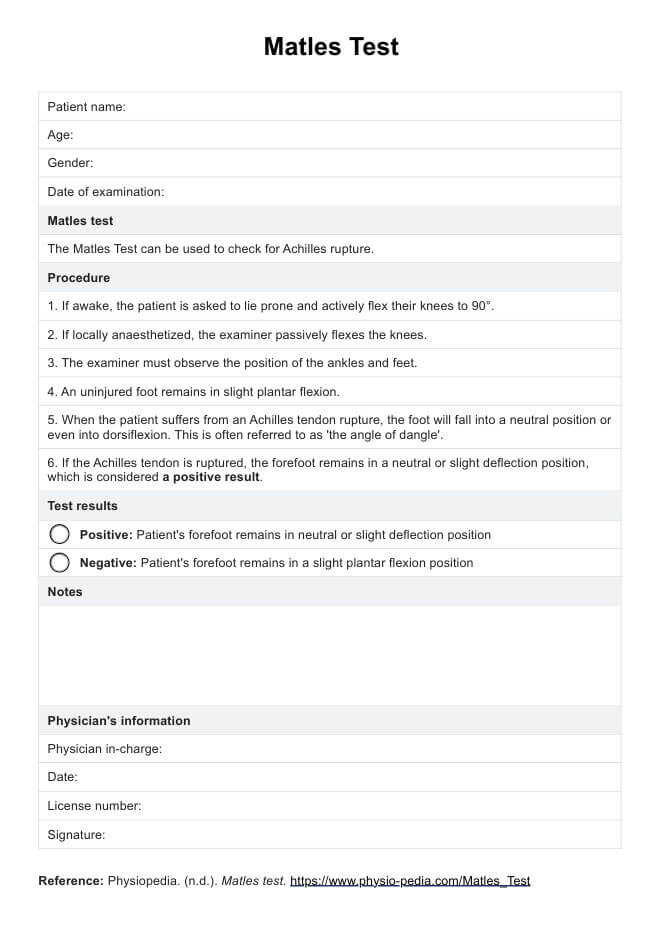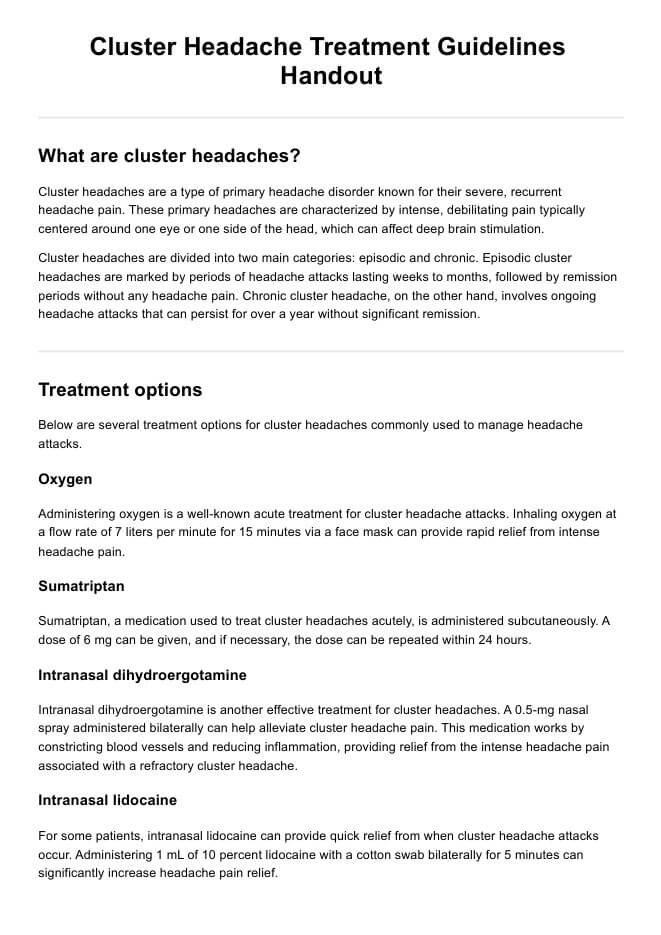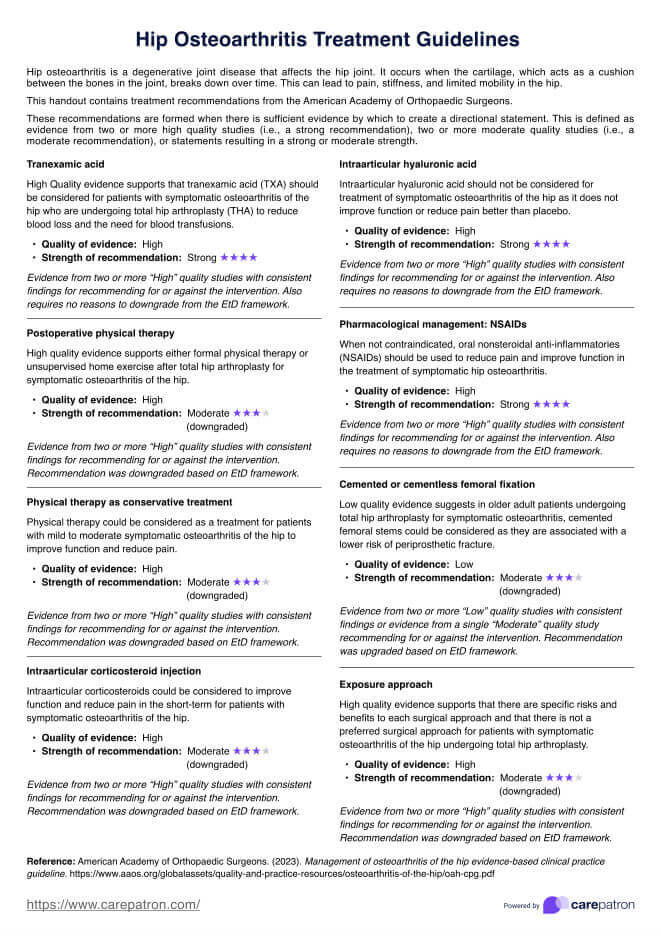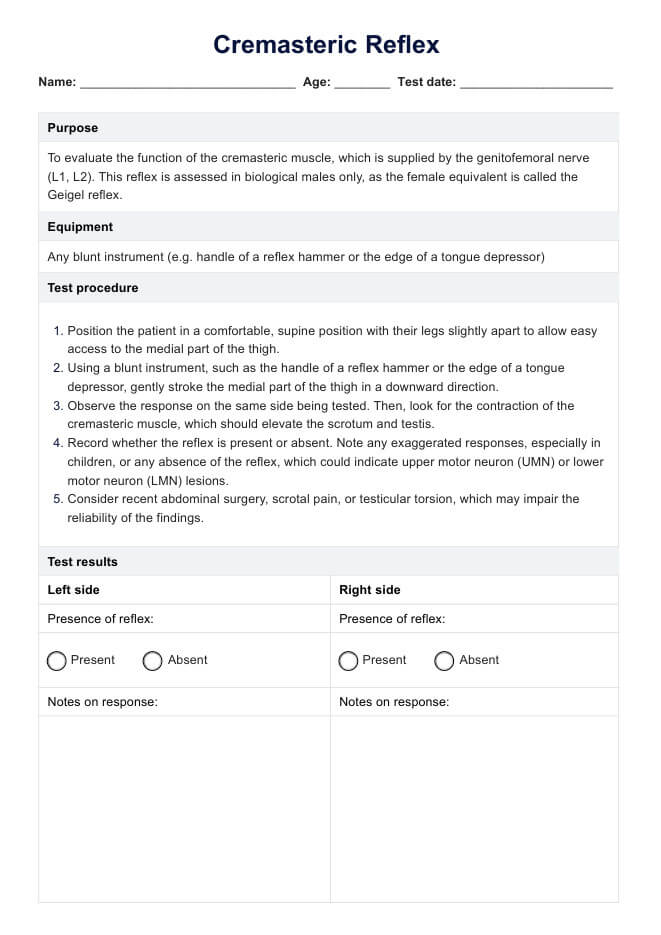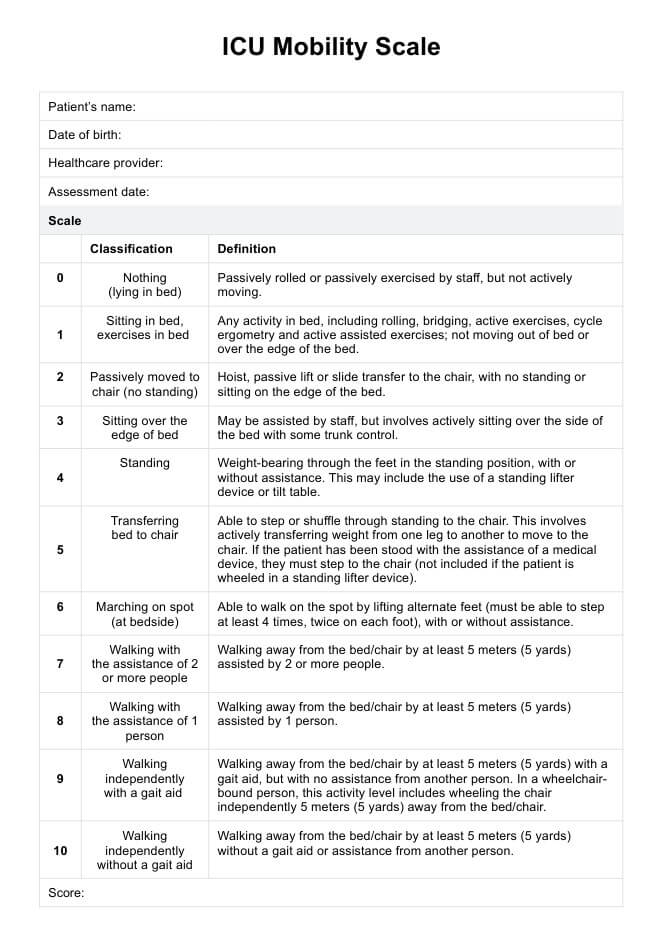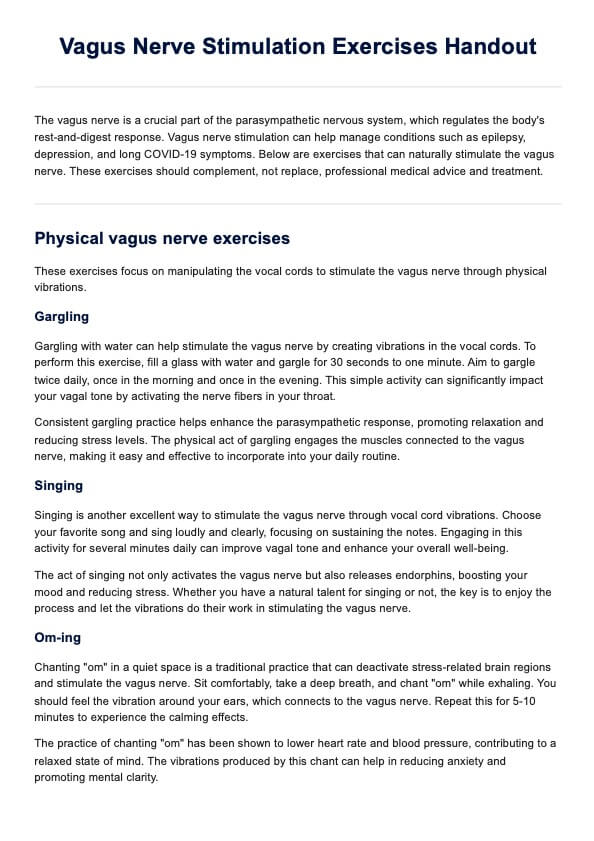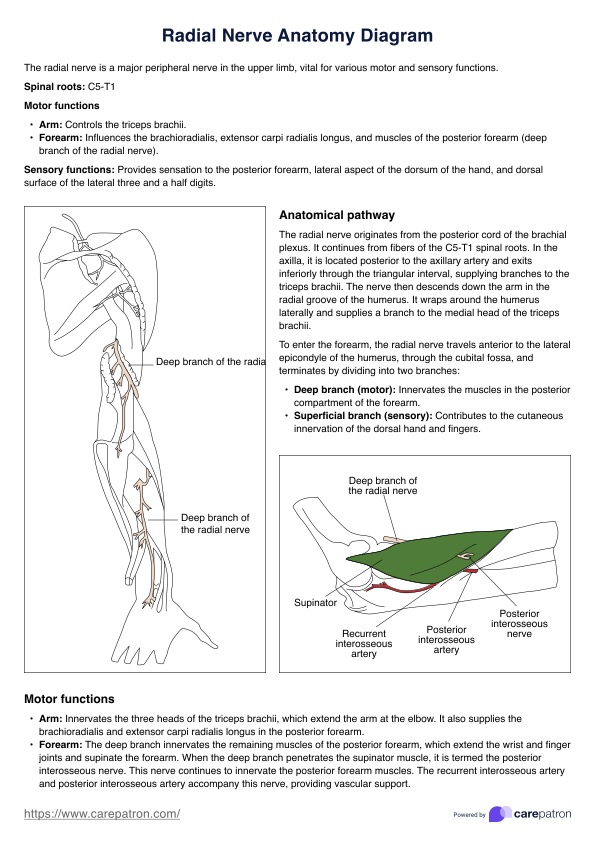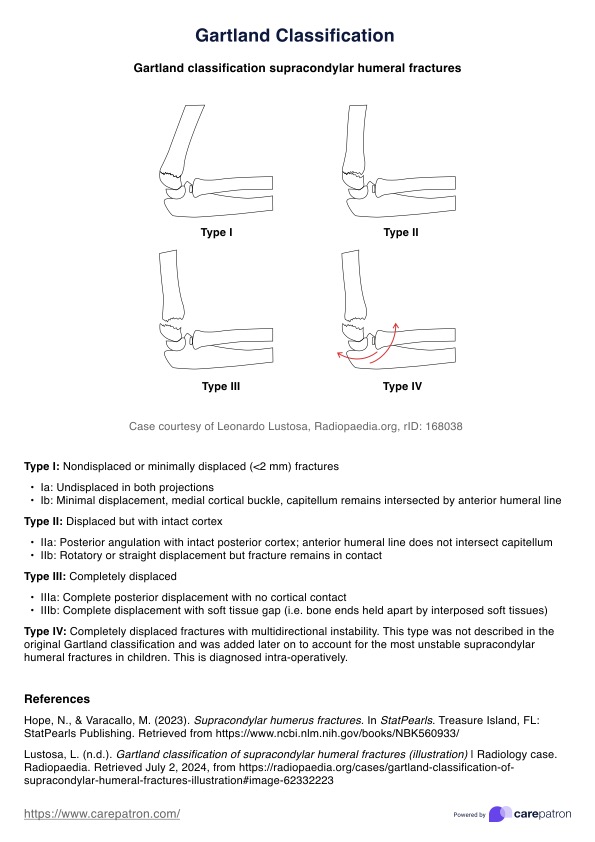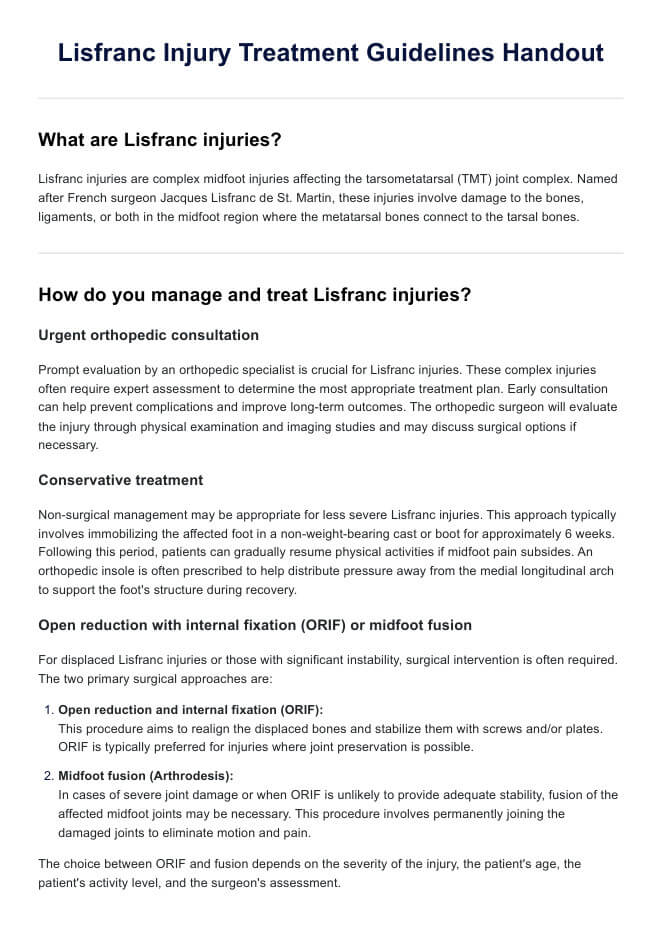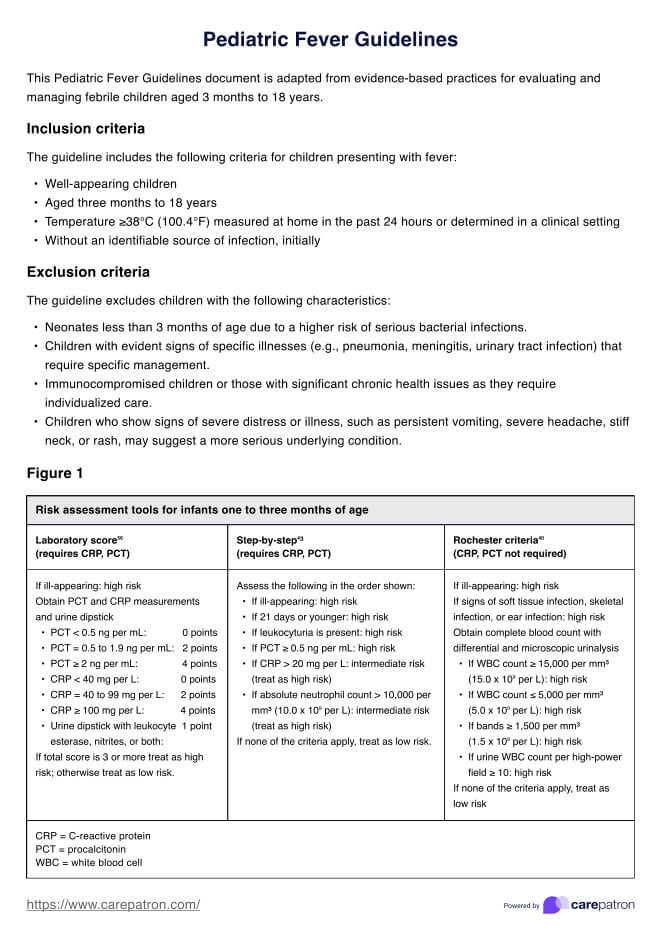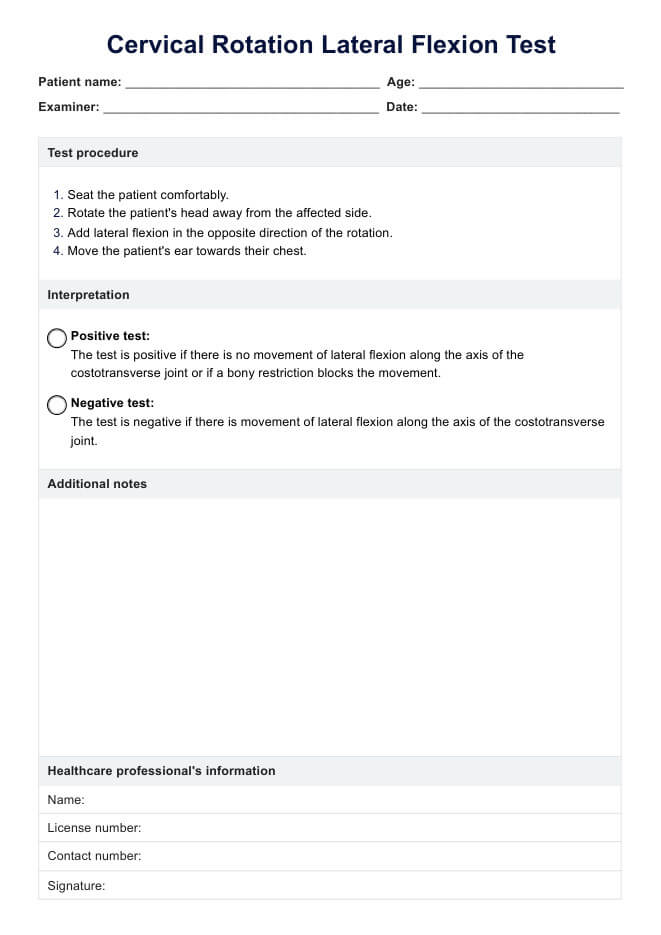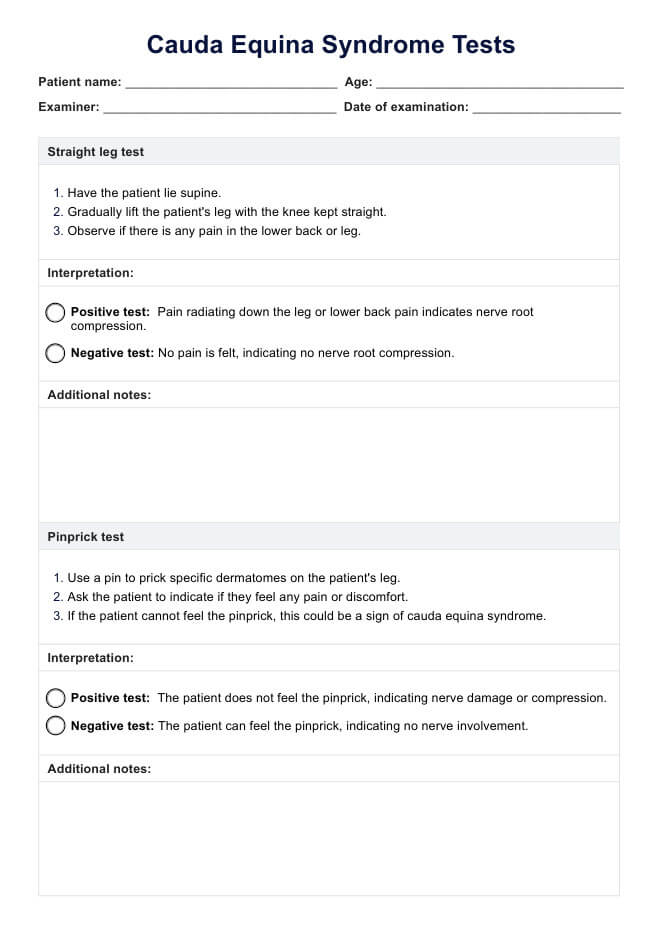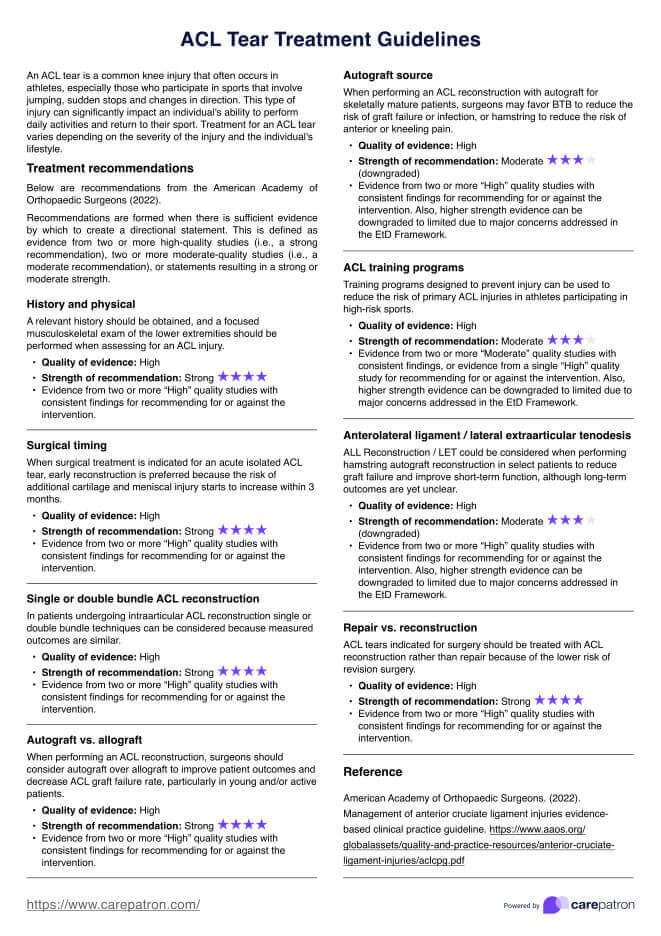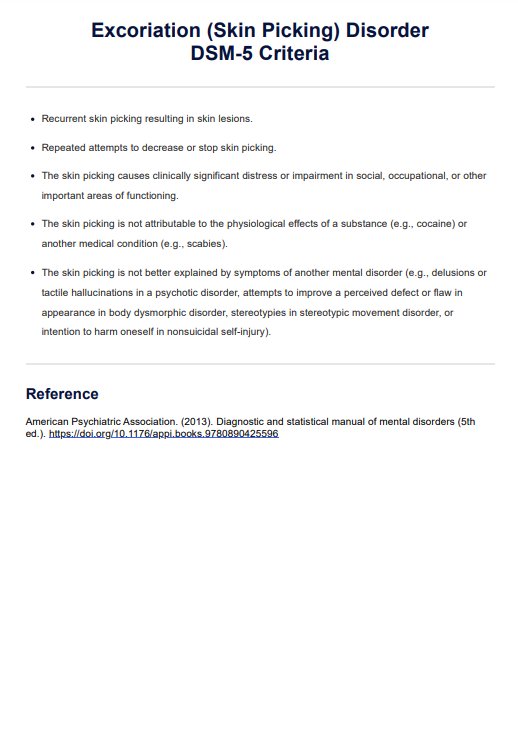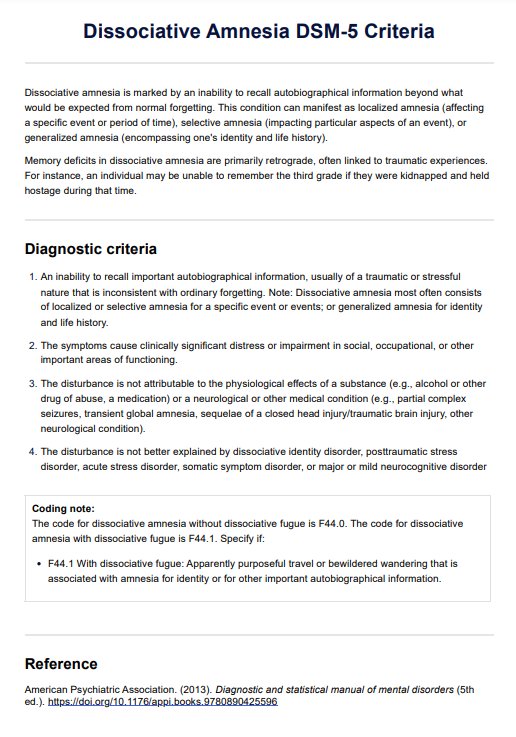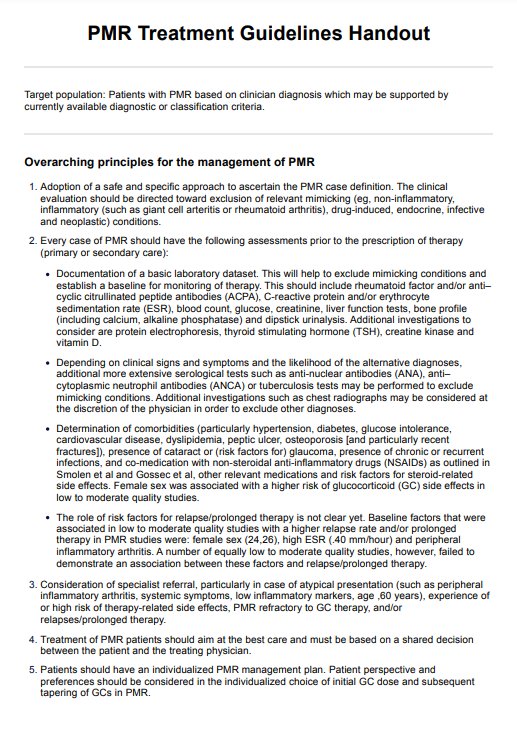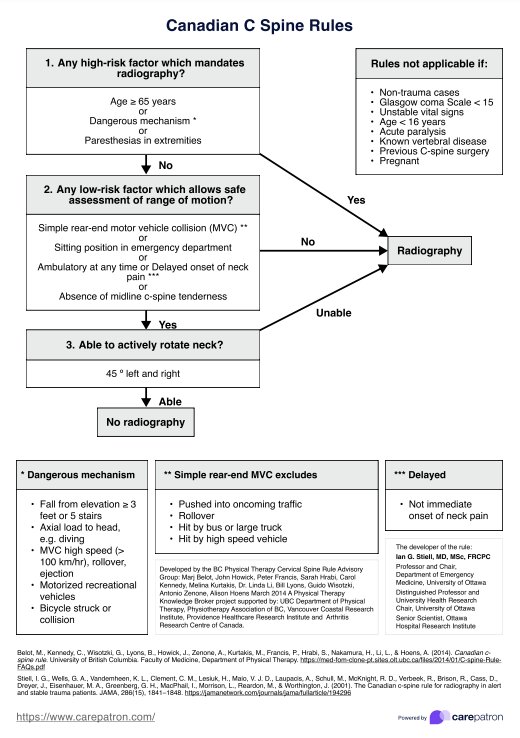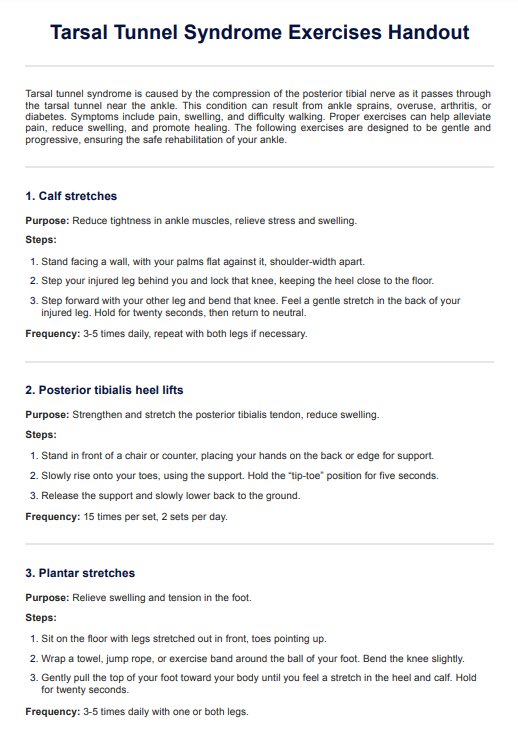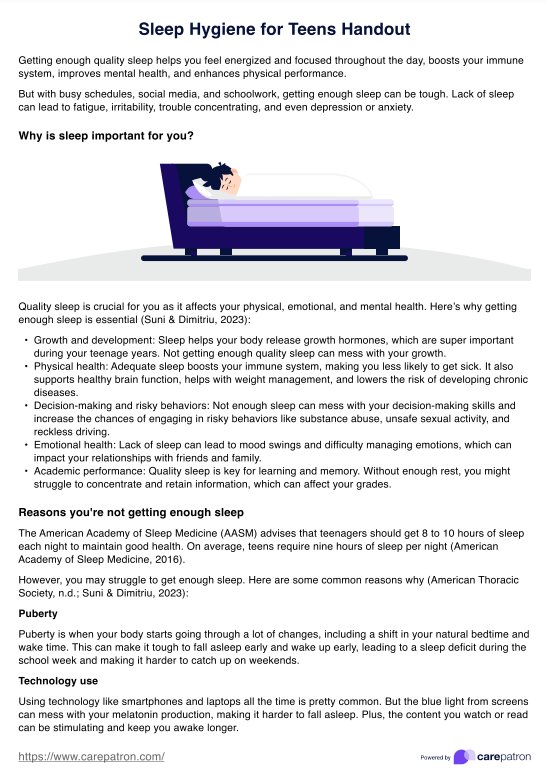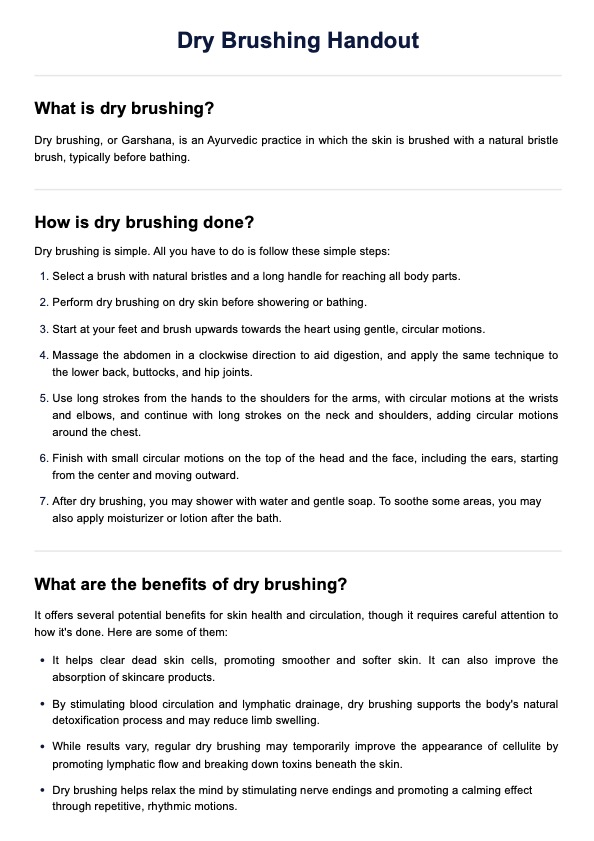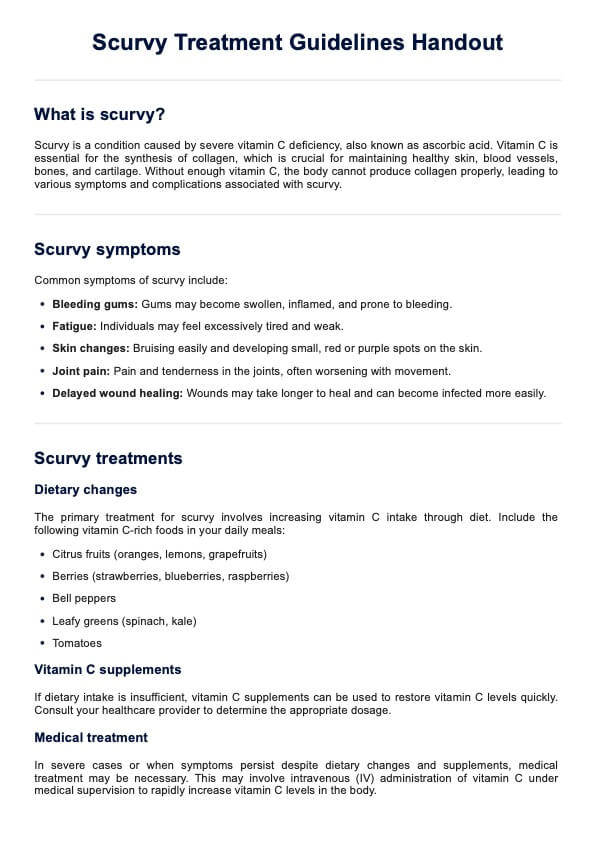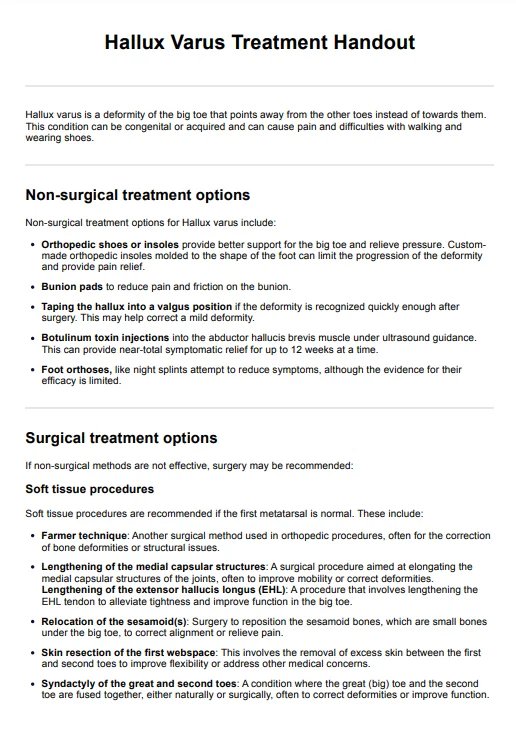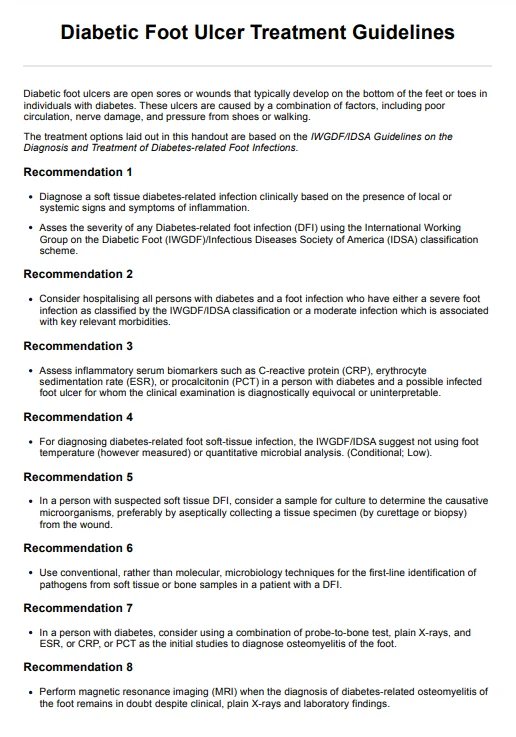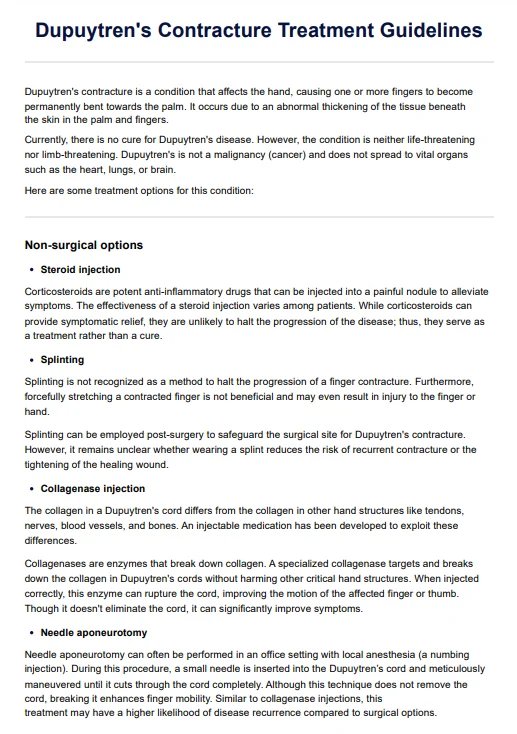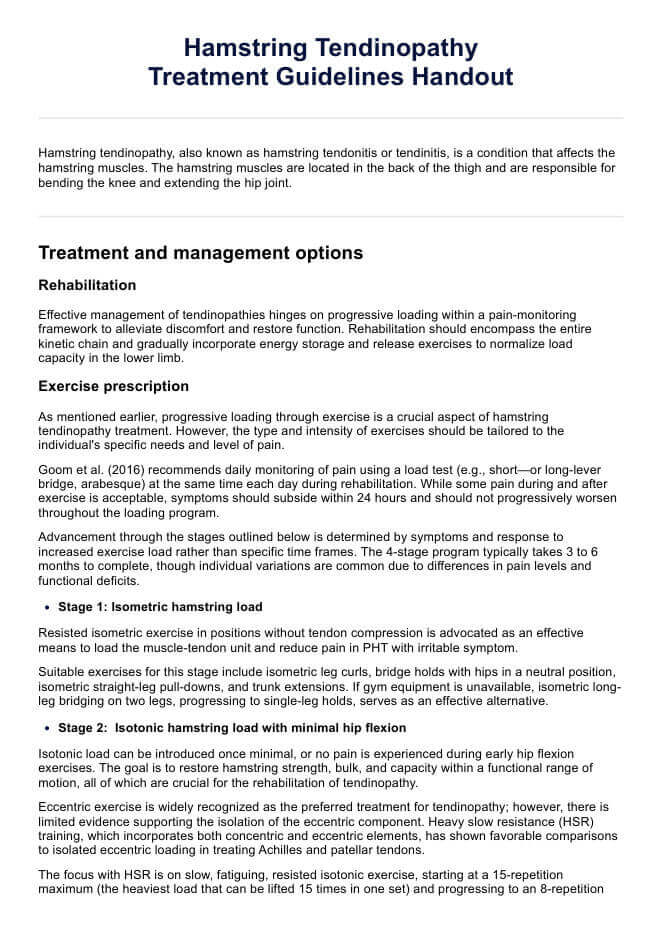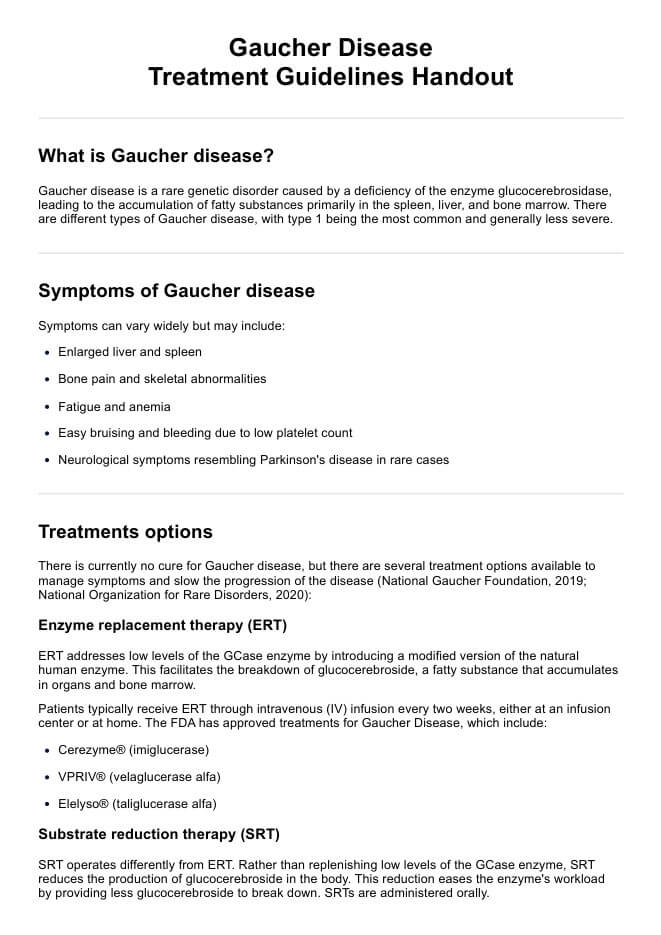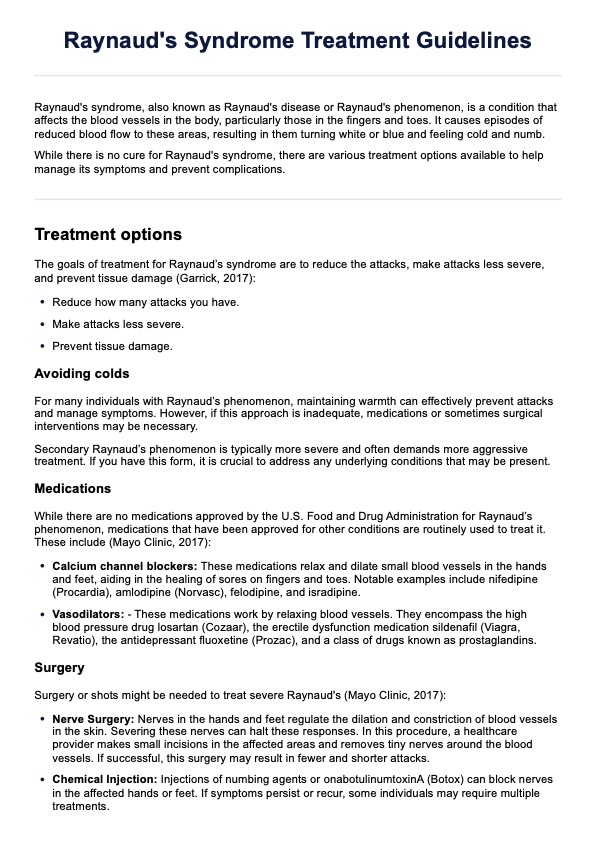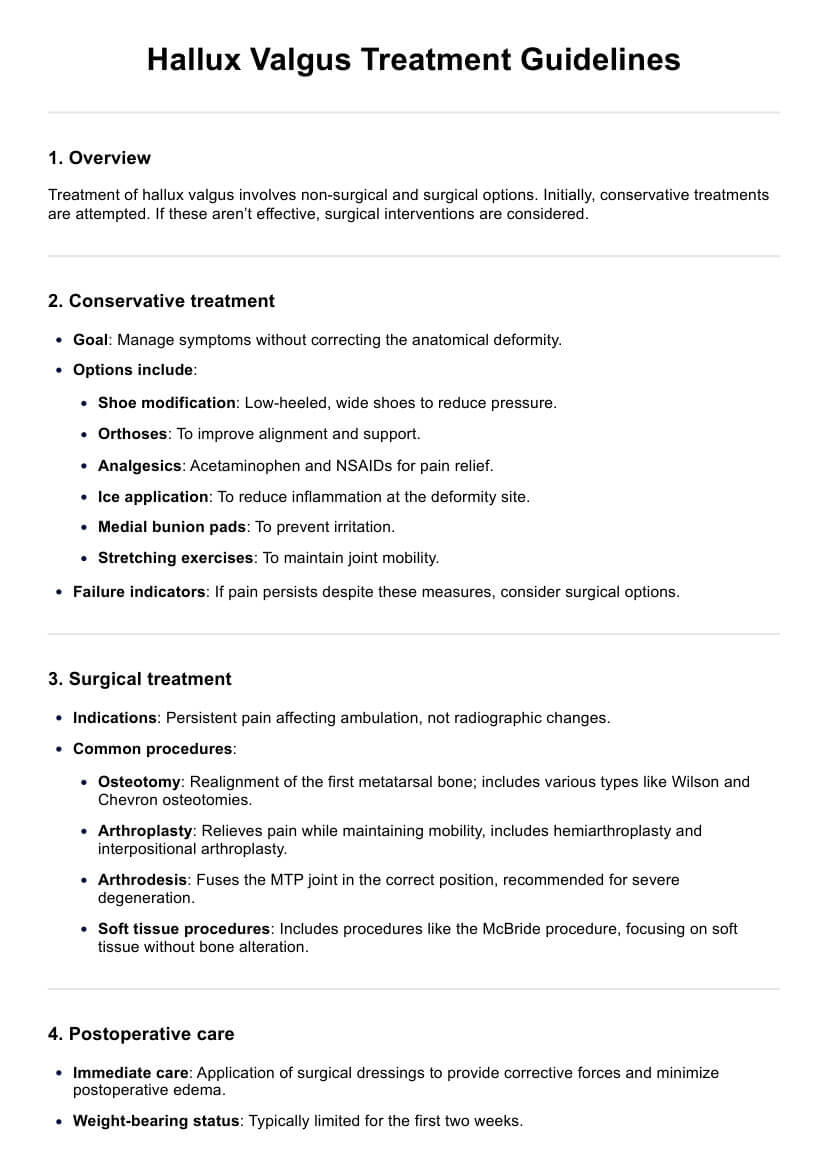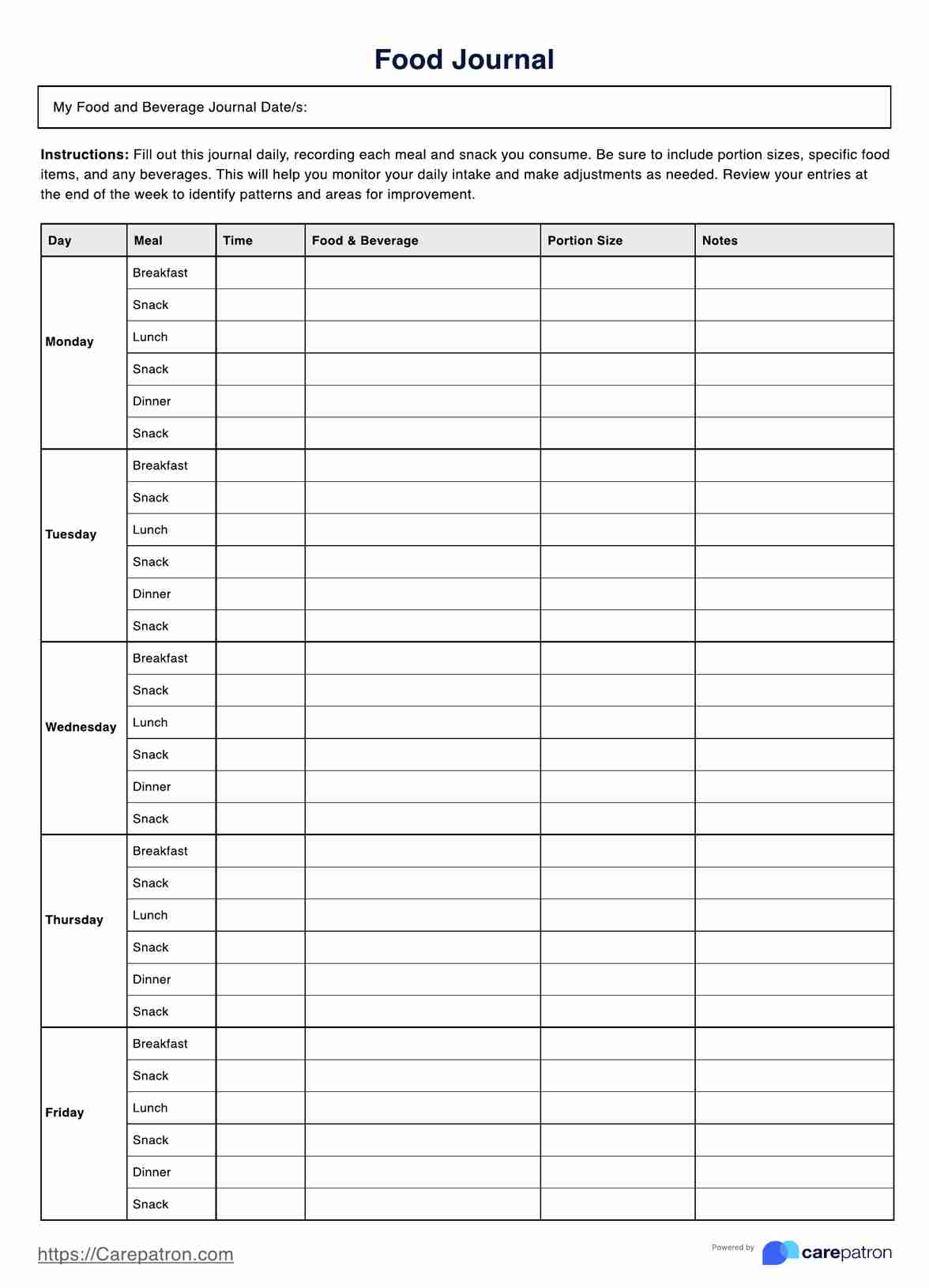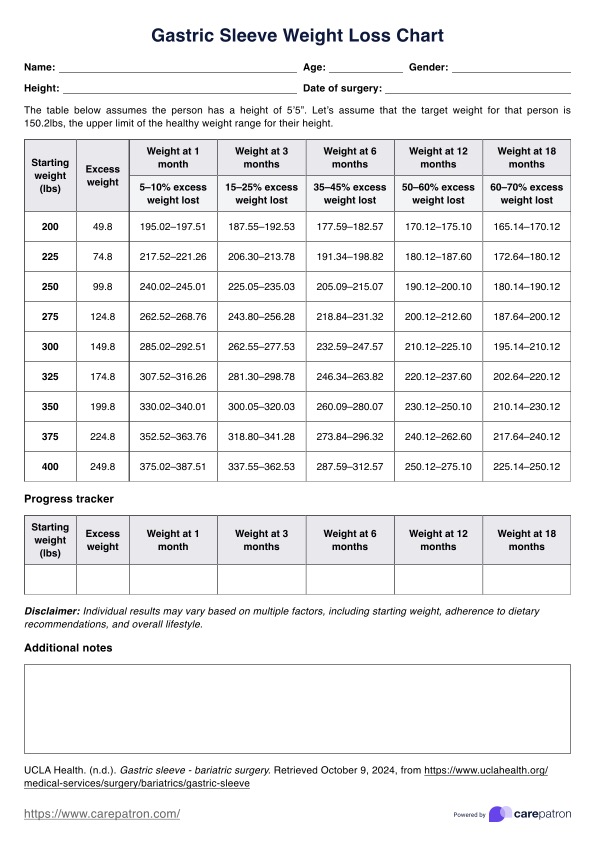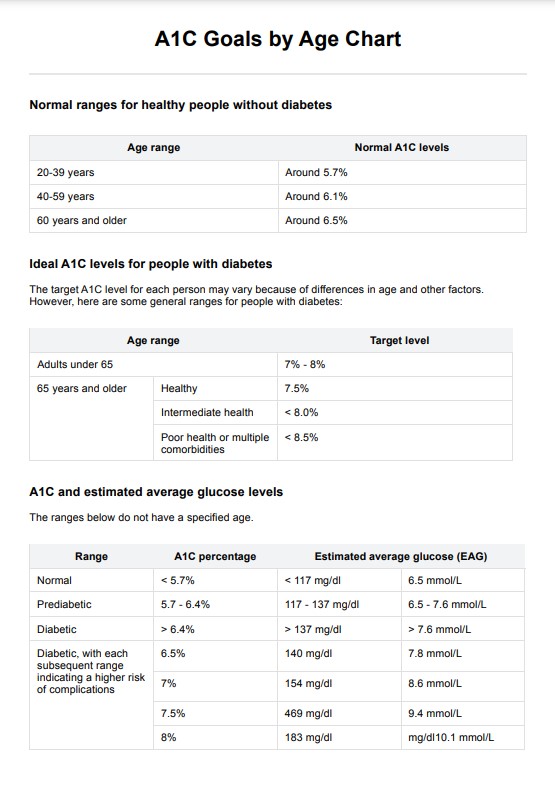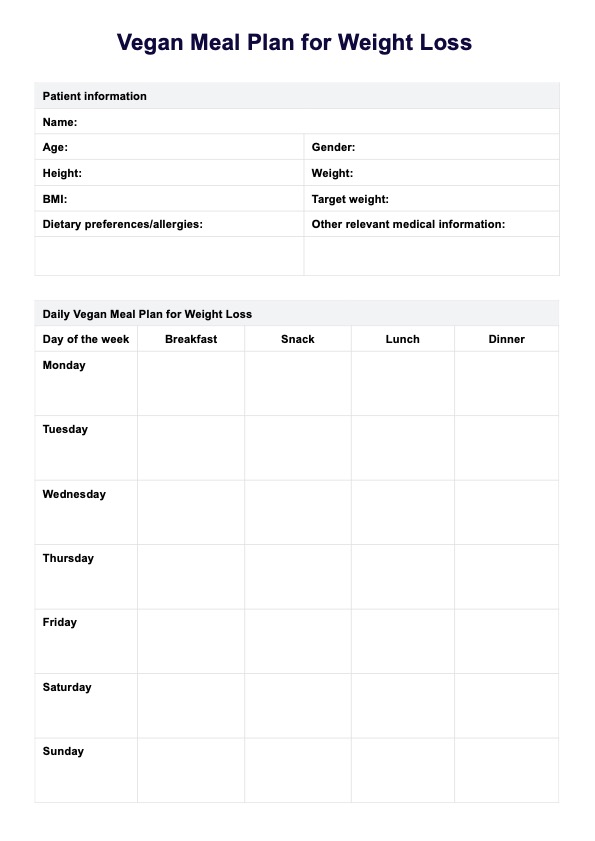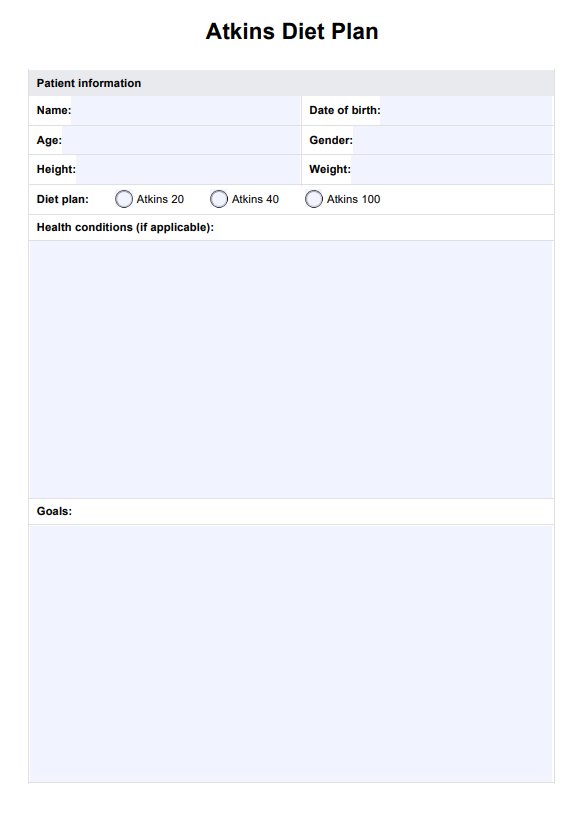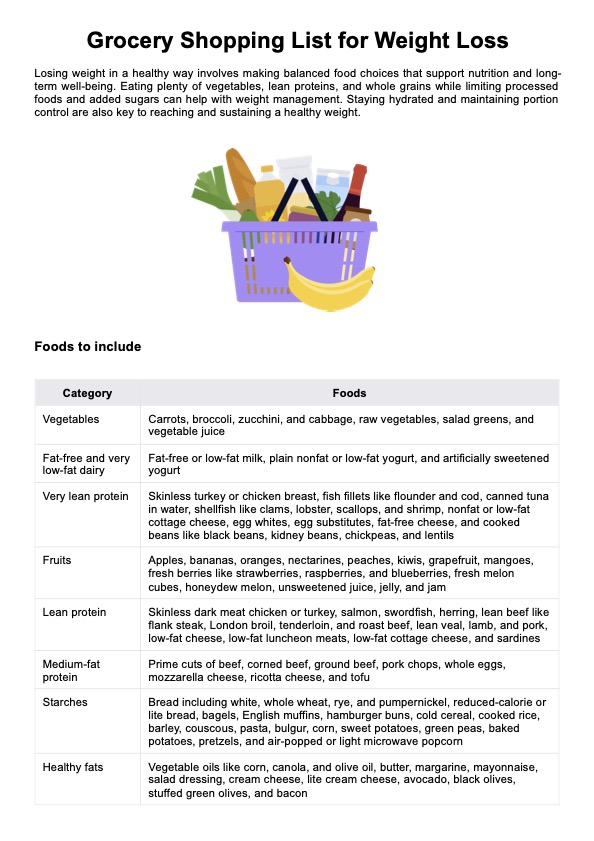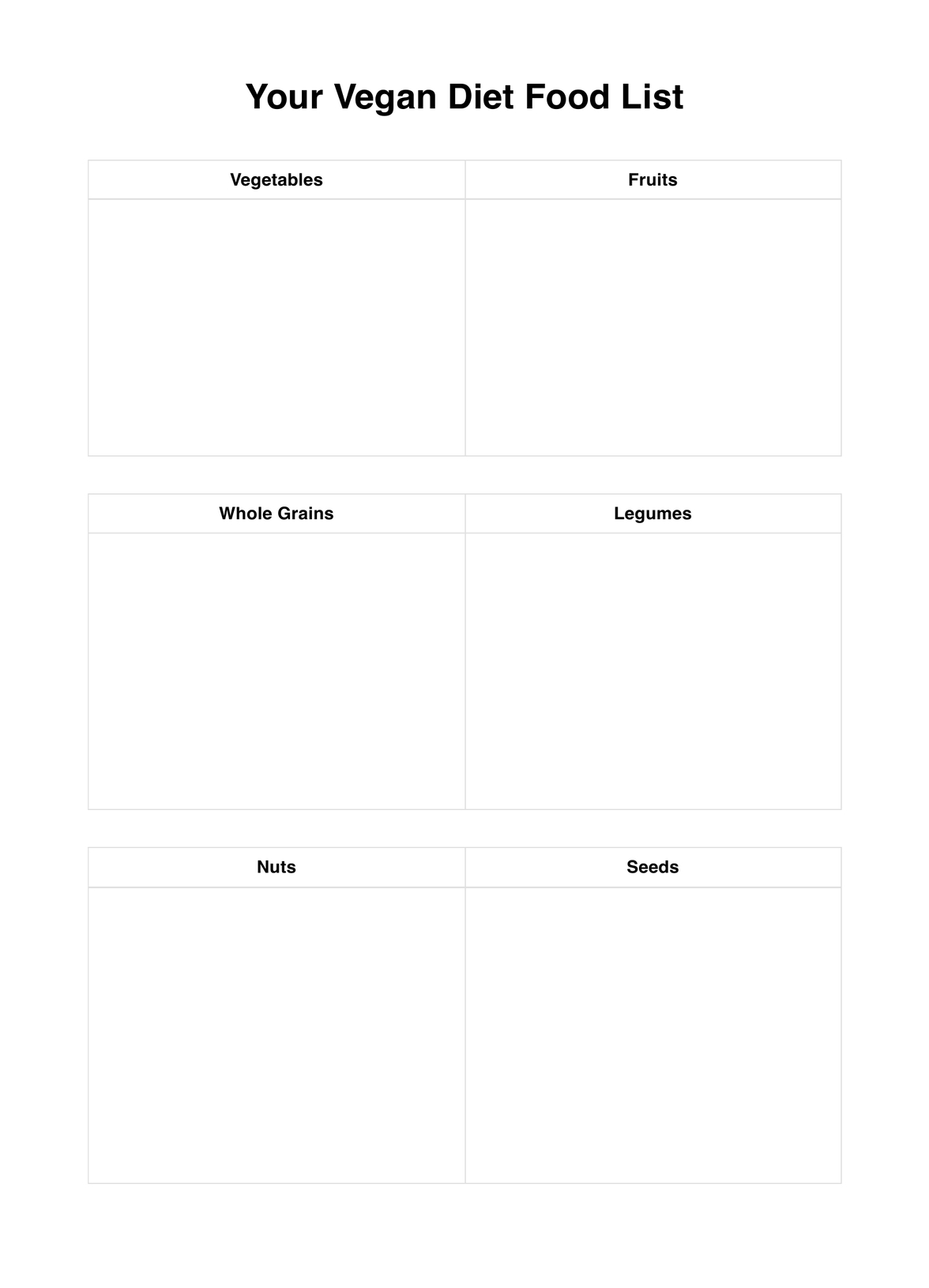Nutrition Assessment
Precisely assess the nutritional needs of your patients and streamline your documentation process using our comprehensive and formatted nutrition assessment form.


What is a Nutrition Assessment Form?
A Nutrition Assessment Form is a valuable tool used by healthcare practitioners to evaluate a patient's overall nutritional status. These forms gather essential information about a patient’s dietary habits, medical history, and any potential nutritional deficiencies. By collecting detailed nutrition assessment data, healthcare providers can identify specific nutritional risks and develop personalized nutrition interventions tailored to each patient’s needs.
Typically, nutrition assessment forms include sections to record the patient's medical background, food intake patterns, and nutrition-focused physical findings. This might involve assessing factors such as body weight, muscle mass, and fat distribution through a physical examination. Through this data, healthcare professionals can evaluate nutritional status more accurately and determine if additional medical tests are necessary to further investigate potential nutritional deficiencies.
The form serves as a foundation for conducting comprehensive nutritional assessments, which are essential in understanding how a patient’s nutrition impacts their overall health. It helps clinicians track changes in health over time and adjust nutritional plans accordingly. These assessments also highlight areas where specific dietary changes could benefit the patient's health, making it easier to recommend appropriate treatment plans.
Nutrition Assessment Template
Nutrition Assessment Example
How to use the Nutrition Assessment Form
Using Carepatron’s Nutrition Assessment Form ensures that healthcare practitioners can accurately assess and track a patient’s nutritional health. By following a clear and structured process, professionals can gather essential data, identify risks, and provide tailored recommendations for improving a patient’s overall well-being.
Access the form template
To begin, you can easily access Carepatron’s Nutrition Assessment Form template through this guide. Simply download or open the form to ensure you have a detailed tool ready for evaluating a patient’s nutritional status and assessing their specific dietary needs.
Review the form content
Before conducting the assessment, take time to review the content of the Nutrition Assessment Form. Familiarize yourself with sections related to dietary history, nutrition-focused physical findings, and medical history to ensure a smooth and thorough evaluation. Understanding the form layout will enhance its effective use.
Use the form to assess patient
With the form prepared, begin assessing the patient's nutritional status. This step involves collecting comprehensive information about their dietary habits, conducting a physical examination, and looking for any signs of nutritional deficiencies. This thorough evaluation will form the basis of the patient’s nutritional care plan.
Record information and observation
As you progress through the assessment, ensure you record all relevant nutrition assessment data in the form. This includes any findings from the patient's medical history, physical examination, and nutrition-focused physical findings. Accurate documentation will help in developing personalized nutrition interventions.
Discuss next steps with patient
After completing the assessment, sit down with the patient to review the findings. Discuss any identified nutritional risks or deficiencies, and recommend the appropriate next steps. This may include dietary adjustments, further medical tests, or follow-up appointments to monitor their progress and meet their nutritional needs.
Benefits of Nutrition Assessment Form
Using a Nutrition Assessment Form offers numerous benefits for healthcare professionals, helping to streamline the nutrition care process and improve patient outcomes. Below are some key benefits that highlight how this tool can be invaluable in evaluating and managing a patient's nutritional health.
Comprehensive nutritional assessment
The Nutrition Assessment Form allows for a thorough evaluation of a patient’s overall health and nutrient intake. It incorporates key factors such as blood pressure, body mass index, and blood glucose levels. This comprehensive nutritional assessment helps healthcare professionals gain a detailed understanding of the patient’s dietary needs and potential risks.
Identifying nutritional risks
One of the primary functions of the form is to highlight any nutritional risks a patient may have, based on their body composition assessment, eating habits, and anthropometric measurements. Early identification of these risks allows for timely interventions, such as recommending appropriate nutritional supplements or adjustments to the patient's diet to improve their overall health.
Monitoring and adjusting nutrient intake
By assessing the patient’s eating habits and nutrient intake against dietary reference intakes, healthcare providers can monitor whether the patient’s diet meets their nutritional needs. The form helps track changes over time, making it easier to recommend adjustments in nutritional supplements, food choices, or even enteral nutrition in cases where patients cannot consume food orally.
Enhanced patient education
The Nutrition Assessment Form facilitates nutritional education by providing healthcare practitioners with a structured way to explain the patient's health status and dietary needs. This leads to more effective conversations regarding nutritional considerations, improving the patient’s understanding of how their diet affects their health.
Commonly asked questions
The four components of a nutrition assessment include anthropometric measurements (e.g., height, weight, and body mass index), biochemical data (e.g., blood tests), clinical evaluation (reviewing health status and medical history), and dietary analysis (examining eating habits and nutrient intake). These elements help healthcare providers form a comprehensive picture of a patient's nutritional health.
A nutritional assessment form includes details about the patient’s nutrient and dietary intake, medical history, body composition assessment, blood glucose levels, and anthropometric measurements. It also evaluates the patient’s lifestyle, eating habits, and risk factors.
Nutritional assessment tools are instruments like nutritional assessments, dietary surveys, and body mass index calculations. These tools help identify nutritional risks and evaluate overall nutritional status, guiding healthcare professionals in their decision-making.
Nurses assess nutrition by collecting data on the patient's dietary habits, conducting anthropometric measurements, and reviewing lab results such as blood glucose levels. They also monitor the patient’s clinical presentation and collaborate with dietitians to develop a personalized care plan.

.webp)
